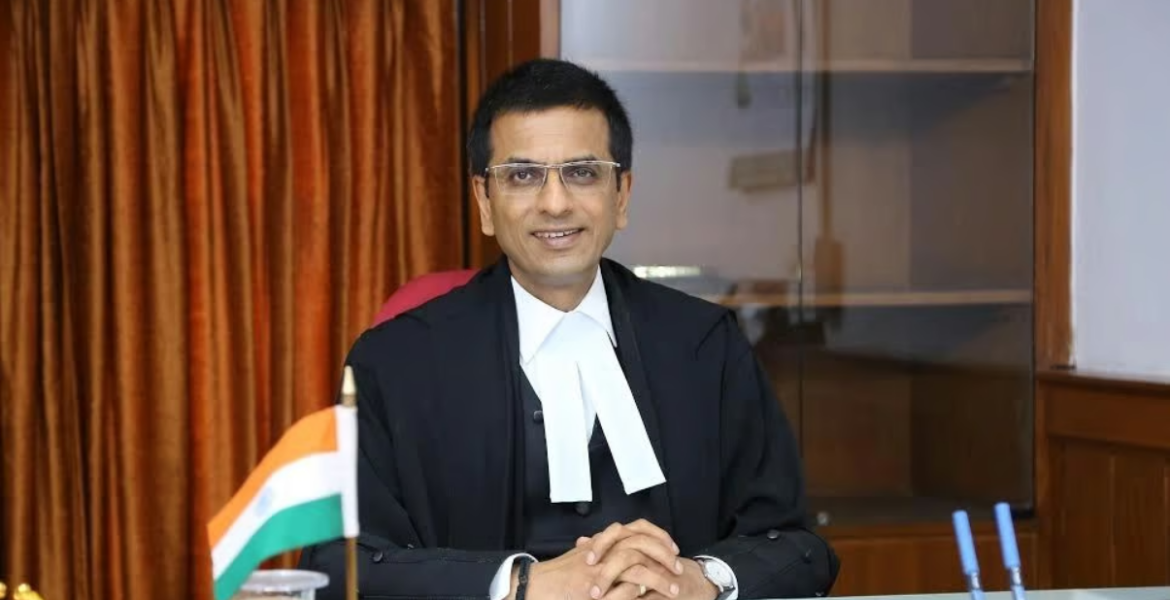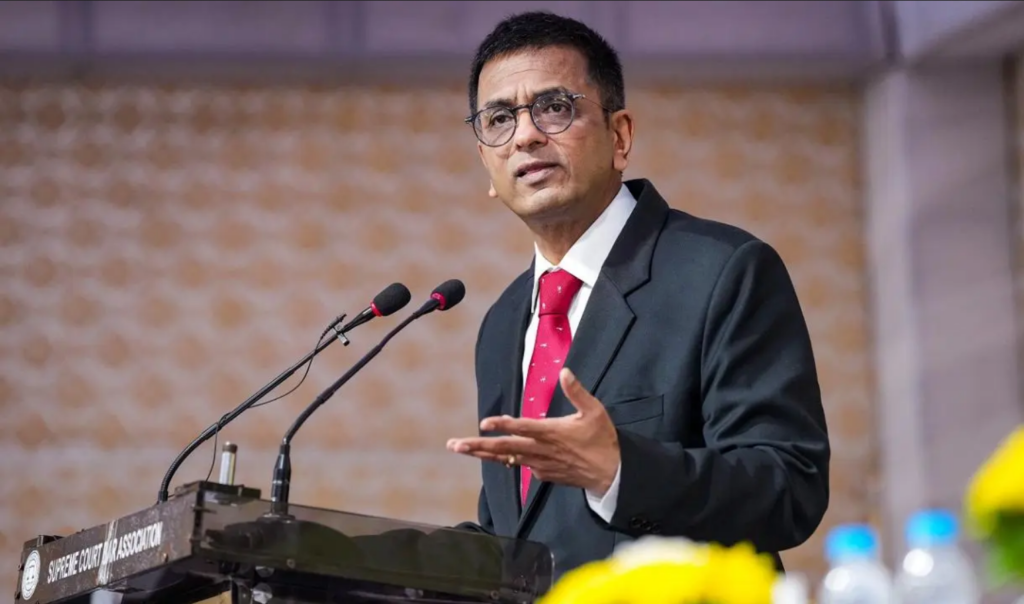
National judicial database says 63 lakh cases considered delayed due to non-availability of counsels: CJI
On December 31, 2022 by RajendraChief Justice of India D Y Chandrachud stated on Friday that more than 63 lakh cases nationwide are facing delays due to a lack of legal representation, and an additional 14 lakh cases are stalled as they await necessary documents or records. Addressing the inauguration of the Andhra Pradesh Judicial Academy, Justice Chandrachud emphasized the need to discard the colonial mindset that regards district courts as subordinate in both hierarchy and practice. He asserted that district courts serve as the backbone of the judiciary and often constitute the first point of contact with the judicial system for many individuals.
Justice Chandrachud highlighted the significance of the principle “bail, but not jail” in the criminal justice system, emphasizing that the deprivation of liberty, even for a single day, is unacceptable. Referring to National Judicial Data Grid (NJDG) data, he revealed that nearly 14 lakh cases across the country are delayed due to the awaited availability of records or documents beyond the court’s control. Additionally, over 63 lakh cases are considered delayed due to the unavailability of legal counsel, underlining the crucial role of the Bar in ensuring the optimal functioning of courts.

While acknowledging that the actual numbers may vary as more data is yet to be received from all courts, Justice Chandrachud urged a reconsideration of Sections 438 and 439 of the Criminal Procedure Code (CrPC), emphasizing that these provisions should not be perceived as mechanical and meaningless remedies. He stressed the need for the district judiciary to provide remedies, as they directly impact the poorest members of society.
Justice Chandrachud expressed concern about a pervasive fear among lower courts regarding decisions on anticipatory bail or regular bail and cited instances where trial court judges were criticized for such decisions in higher courts. He called for an end to practices that analyze judges’ performance based on conviction rates.

As part of the ‘Digital India’ mission, Justice Chandrachud mentioned the establishment of common service centers at every Gram Panchayat level, with efforts to merge e-court services to make judicial facilities accessible at the village level. He emphasized the goal of replacing the colonial model of justice-seeking with a new justice delivery system that reaches out to citizens. The Chief Justice also noted the predominance of women legal professionals in the judiciary and encouraged judicial officers to stay informed about external developments while providing emotional stability in their roles.
In conclusion, Justice Chandrachud announced the upcoming installation of ‘Justice Clocks’ in every court establishment to monitor the progress of cases.
Archives
Calendar
| M | T | W | T | F | S | S |
|---|---|---|---|---|---|---|
| 1 | 2 | 3 | 4 | 5 | 6 | |
| 7 | 8 | 9 | 10 | 11 | 12 | 13 |
| 14 | 15 | 16 | 17 | 18 | 19 | 20 |
| 21 | 22 | 23 | 24 | 25 | 26 | 27 |
| 28 | 29 | 30 | ||||